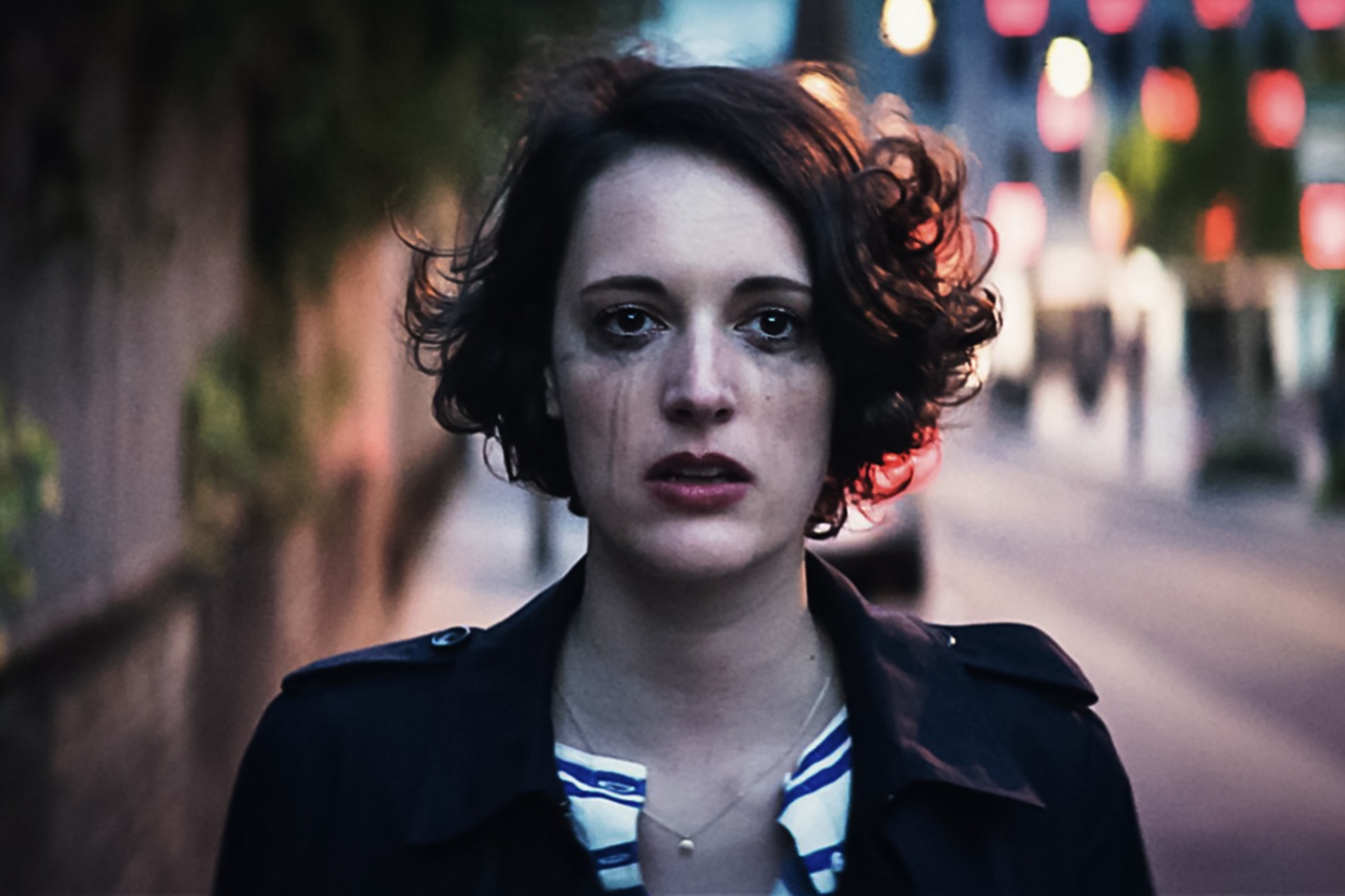TV Review: Fleabag is a Revelation with Twists and Turns
“Back in the day, horny women were to be feared and now they’re given Emmys,” says Phoebe Waller-Bridge, writer and star of the hit TV show Fleabag. The show took home 4 awards at the Emmys this year. What started out as a one-woman play at the Edinburgh festival has become a hallmark for dramedy. It’s an exploration of a woman trying to be a feminist and what it feels to be a mediocre one. The protagonist, whose name we only know as Fleabag, is “sexually depraved, foul-mouthed and dangerous” as per Waller-Bridge’s own description.
In Series 1, Fleabag is reeling from the loss of her best friend Boo and uses any and all means to cope and plough along. The cruelties of life don’t announce themselves; they creep up on you. And more often than not, they are your own creations. The flashbacks of Boo’s sudden death allow the audience to piece together the guilt that she feels and tries to suppress. It simmers beneath the surface, memories of her mistakes, misadventure, malady clouding her consciousness—haunted not just by their absence but by her own shame.
Her inability to pass up an opportunity to rile up others makes her both intensely apathetic and vaguely pathetic. Fleabag is an anti-heroine. Indifferent to herself, which makes her dry sense of humour all the more intoxicating—she’s sort of awful. But that’s why I love her. In all her contradictions and annoying quirks, she’s a woman trying to navigate the complexities of a modern world. She fails to get a loan after accidentally flashing the bank manager and lets her café fall into liquidation. Her annoyingly loud brother-in-law tries to kiss her at her sister’s birthday party. The awkward situations are endless.
When Fleabag talks to the camera, she’s talking directly to you—and only you. You have a special bond with her. When asked if she has any friends in therapy, Fleabag looks to you and winks. It’s a secret you both share about how we carry regret, and the comedy and frustration of not being able to take yourself seriously. As hilarious and sad as it may be, you can’t help but relate to this incandescent mess of a person when the camera closes in on her sassy facial expressions. The show also captures the essence of everything being sort of normal but also acutely painful by animating the mundaneness of loneliness. Interweaving family conflict, problems committing to mediocre relationships, and work-related dread as part of being. Although these are weighted issues, Phoebe Waller-Bridge’s character brings a lightness and humour to the interactions.
Series 2 gets to the heart of self-improvement. The brilliance of the show’s second and final season makes its first seem like a prelude—a mere setting of the scene. The physical comedy and sharp one-liners are cutting and concise. Fleabag and her sister Clare, played by Sian Clifford serve as foils for one another, stark opposites. Clare, a tightly-wound professional with no sense of adventure, indulges herself a little, while Fleabag tries to exercise self-restraint, curbing her tongue and attempting abstinence. The progression of the characters isn’t linear yet their messiness is splattered across the screen like a 140-million-dollar Jackson Pollock.
But Series 2 is really a love story. Fleabag falls for a catholic priest. The “Hot Priest” who, incidentally, is going to officiate her father’s wedding. Their love leaps off the screen in fluorescent colours, with crimson red sexual tension. Andrew Scott, known for playing eccentric characters such as Moriarty in Sherlock and Garry Essendine in the play Present Laughter, is fantastically charming employing that age-old trick that drives women crazy—gasp, he pays attention. He sees through Fleabag’s antics and even breaks the fourth wall, an interaction previously reserved only for Fleabag. When Andrew Scott looks into the camera at the unsuspecting audience, the shock and delight of being seen, of having really seen fleabag, is visceral.
While officiating the marriage in the final episode, he shouts “I was taught that if we’re born with love, then life is about finding the right place to put it. People talk about that a lot, feeling right, when it feels right it’s easy. But I’m not sure that’s true. It takes strength to know what’s right. And love isn’t something that weak people do.” The Priest chooses to love God, leaving her alone at a bus stop as This Feeling by the Alabama Shakes plays. It’s the perfect ending to the show, encapsulating all the complexities and depths that it ventures to understand. A nod to the romantics, and a salute to the bittersweetness of love. Fleabag shakes her head. The camera halts as she walks out of the frame. As we bid our anti-heroine farewell, we leave each other heartbroken. But that’s okay, because at least we had each other even if it was for a brief time.
Image credit: Amazon


